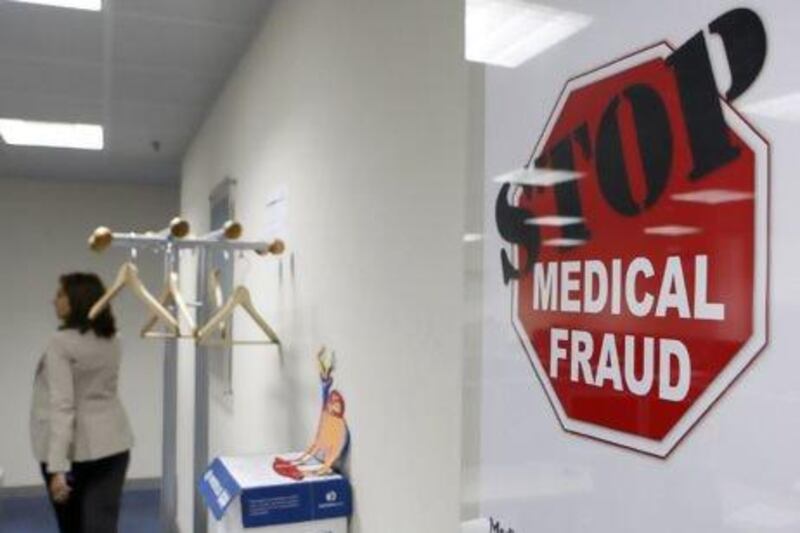Insurers in the UAE are analysing prescriptions written by physicians to identify patterns of expensive procedures as health costs spiral out of control.
Daman, the government-backed company that insures more than 2 million people across the Emirates, has expanded its investigations unit responsible for spotting rogue claims.
"This unit is able to tell per doctor if their prescriptions or application of a certain diagnosis are above statistical measures," said Dr Sven Rohte, the chief commercial officer of Daman.
"We do a trend analysis. So if you are above the upper quartile you have to have extremely bad luck that you always get these complicated cases or always have to apply this expensive diagnosis."
Mounting health costs have forced some companies to pare back policy benefits as insurers move to strike off from approved lists clinics deemed too costly.
Outpatient medical inflation has been running at an average of 26 per cent each year since 2007, according to Daman data.
Hospitals blame rising drug and operating costs while insurers and regulators have highlighted issues such as duplicate billing and "up-coding" - a process in which hospitals bill for treatments that have not been performed or are deemed unnecessary.
Daman investigates more than 1,000 cases of suspected fraud and abuse every year and last year referred several cases to the courts.
Despite checks, there are many cases of overcharging that are almost impossible to prove, according to Dr Rohte.
He cites the abnormally high number of claims the insurer receives for the removal of sand or grit from a patient's eye.
"There are a lot of areas where the providers have good room to upcode within certain limits which can't be challenged by the insurance companies," he said. "It is also not easy for us to claim money back because according to the standard provider contract we first have to pay the full amount and then claim back.
"A more balanced approach would be to isolate the disputed amount and pay the rest and then you can have a discussion."
He blames the "shop" culture of some hospitals in which patients are encouraged to use a range of services that they are told are covered by their insurance policies.
"So we do the MRI, and then we do the X-ray, and then we do this blood test and this and this. The challenge is the providers are extremely profit-oriented. A lot of doctors have revenue targets to meet to get their bonus so they are incentivised to apply the expensive stuff."
But analysing the prescribing habits of doctors may not be the best way of saving money in the system according to Dr Otmar Kloiber, the secretary general of the World Medical Association, based in France, which represents physicians worldwide.
"If the fire brigade uses more water to quench a fire, do you tell them to use less? Probably not. You have to be careful that you are turning the right screws," he said.
He said that the phenomenon of rising health costs is unlike inflation in other sectors because it is being produced by a global economic shift towards service-based economies in which the health industry forms an increasingly major part. So it becomes less about the rising cost of particular drugs or procedures and more about rising incomes, increased life expectancy and greater expectations on the part of the patient.
That shift, which has taken hundreds of years in some developed western economies, is occurring in decades in much of the Arabian Gulf and is being felt more acutely because of the prevalence of chronic conditions such as diabetes.
More than 10 per cent of health spending in Abu Dhabi goes towards treating cardiovascular disease and 8.6 per cent to diabetes.
Thousands of health professionals will descend on Dubai tomorrow for the Arab Health convention, where medical inflation is expected to emerge as a key theme.
As insurers probe the prescribing habits of doctors, hospitals should also ensure physicians are aware of the cost of items ,according to Dr Toby Cosgrove, the chief executive of Cleveland Clinic, writing exclusively for The National today.
"Part of the cost solution is to educate doctors about what items cost," he says. "If doctors don't know the cost difference between a silk stitch [about $5, or Dh18] and staples [about $400], it's impossible for them to make informed decisions."





